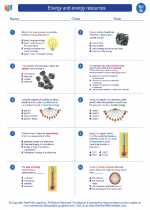Pituitary Gland
The pituitary gland, also known as the hypophysis, is a small, pea-sized gland located at the base of the brain. It is often referred to as the "master gland" because it plays a crucial role in regulating various bodily functions by secreting hormones that control other endocrine glands.
Anatomy of the Pituitary Gland
The pituitary gland is divided into two main parts: the anterior pituitary (adenohypophysis) and the posterior pituitary (neurohypophysis). Each part has distinct functions and secretes different hormones.
Anterior Pituitary
The anterior pituitary produces and releases several important hormones, including:
- Adrenocorticotropic hormone (ACTH)
- Thyroid-stimulating hormone (TSH)
- Growth hormone (GH)
- Prolactin (PRL)
- Follicle-stimulating hormone (FSH)
- Luteinizing hormone (LH)
Posterior Pituitary
The posterior pituitary stores and releases two hormones produced by the hypothalamus:
- Oxytocin
- Vasopressin (antidiuretic hormone, ADH)
Functions of the Pituitary Gland
The hormones secreted by the pituitary gland have diverse functions that impact growth, metabolism, reproduction, stress response, and water balance in the body. For example, growth hormone stimulates growth and cell reproduction, while thyroid-stimulating hormone regulates the thyroid gland's hormone production.
Disorders of the Pituitary Gland
Malfunctions of the pituitary gland can lead to various disorders, such as gigantism (excessive growth due to overproduction of growth hormone), dwarfism (lack of growth hormone), and diabetes insipidus (impaired production of ADH).
Study Guide
To study the pituitary gland effectively, consider the following key points:
- Understand the anatomy of the pituitary gland, including its two main parts and the hormones they secrete.
- Memorize the functions of each hormone produced by the pituitary gland and how they impact the body.
- Learn about common disorders associated with the pituitary gland and their symptoms.
- Use diagrams and visual aids to understand the connections between the pituitary gland, hypothalamus, and target organs affected by its hormones.
- Practice identifying the feedback mechanisms involved in the regulation of pituitary hormone secretion.
By mastering these concepts, you will gain a comprehensive understanding of the pituitary gland and its importance in maintaining hormonal balance and overall health.
.





